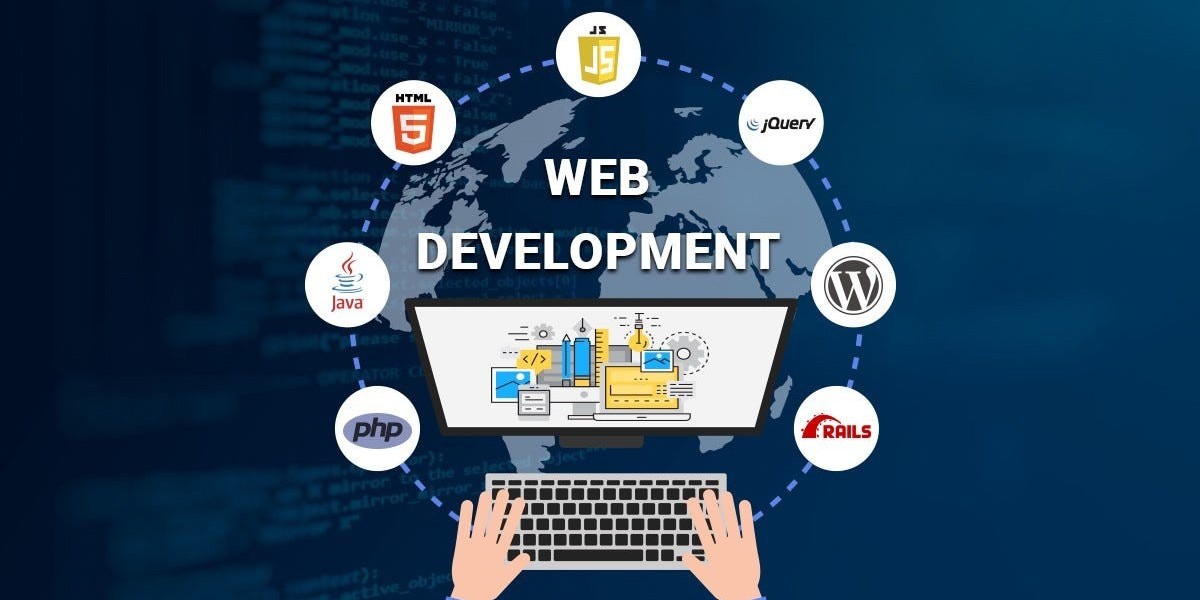The internet is woven from lines of code, and web developers are the architects behind the websites and applications we use every day. A web development course equips you with the skills and knowledge to bring your digital ideas to life, shaping the ever-evolving landscape of the web. This article dives into the details of web development courses, explores their benefits, and answers some frequently asked questions to help you pave your path in the exciting world of web development.
Course Formats and Learning Styles:
Web development courses cater to diverse learning styles and goals. Here are some common options you might encounter:
- Online Courses: Offer flexibility and affordability with video lectures, interactive coding exercises, and self-paced learning. Ideal for busy individuals who can learn at their convenience.
- In-Person Bootcamps: Immerse yourself in intensive training sessions led by experienced instructors, allowing for real-time feedback, collaboration, and hands-on coding challenges.
- Coding Bootcamps: Designed for accelerated learning, these programs focus on practical skills and project-based learning to equip you for web development careers quickly.
- Degree Programs: Earn a formal qualification like an Associate's or Bachelor's degree in computer science or web development, providing a comprehensive theoretical foundation alongside practical skills.
Course Content:
A well-designed web development course in chandigarh typically covers these core programming languages and technologies:
- Front-End Development: Learn the languages that shape the visual elements and user interaction of a website, including HTML, CSS, and JavaScript.
- HTML: The foundation of web pages, structuring content and information.
- CSS: Controls the presentation and styling of website elements, like layout, colors, and fonts.
- JavaScript: Adds interactivity and dynamic behavior to web pages.
- Back-End Development: Delve into the server-side programming that powers website functionalities, such as databases and user interactions. This might involve languages like Python, Java, or PHP.
- Web Frameworks and Libraries: Explore popular frameworks like React, Angular, or Django that streamline development processes and provide pre-written code for common functionalities.
- Version Control Systems (VCS): Master tools like Git for version control and collaboration, allowing you to track changes and manage code effectively.
- Web Development Tools and Debugging: Learn essential tools for debugging code, inspecting elements, and optimizing website performance.
Benefits of Taking a Web Development Course:
- Become a Web Developer: Gain the skills and knowledge to build websites and web applications from scratch, pursuing a rewarding career in web development.
- Boost Your Problem-Solving Skills: Web development requires critical thinking and logical problem-solving skills, valuable assets in various fields.
- Build a Strong Portfolio: Develop projects throughout your training to showcase your coding skills and creativity to potential employers.
- Stay Ahead of the Curve: The web development landscape is constantly evolving. Courses keep you updated on the latest trends, languages, and frameworks.
- Freelance Opportunities: With your newly acquired skills, you can offer freelance web development services to clients or businesses.
Conclusion:
A web development training in chandigarh empowers you to become a builder of the digital world. Whether you dream of a web development career, want to build your own web applications, or simply enhance your technical skillset, this training equips you with the tools and knowledge to translate ideas into functioning websites and applications.
FAQs:
- What type of web development course is right for me?
The ideal format depends on your learning style, goals, and budget. Online courses offer flexibility, in-person programs provide interaction, bootcamps offer accelerated learning, and degrees provide a comprehensive foundation.
- Do I need to be good at math to become a web developer?
A basic understanding of math concepts can be helpful, but strong problem-solving and logical thinking are more crucial than advanced mathematical skills.
- What programming languages will I learn?
Courses typically focus on core languages like HTML, CSS, and JavaScript. Back-end development courses might introduce Python, Java, or PHP.
- How much does a web development course cost?
Costs vary depending on the format, duration, and provider. Online courses tend to be more affordable, while in-person programs, bootcamps, and degrees might have higher fees.
- What can I do after completing a web development course?
Apply for web development jobs, offer freelance services, pursue further education in computer science, or even launch your own web development business.



